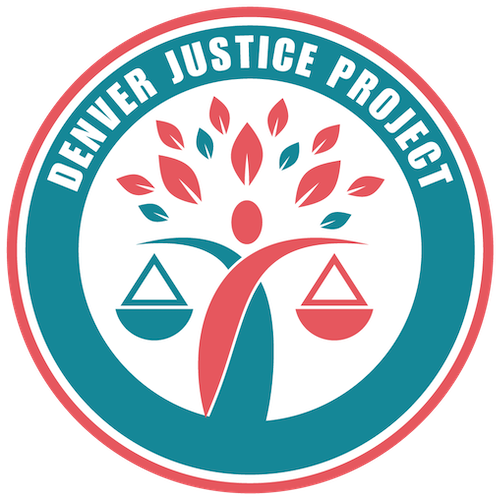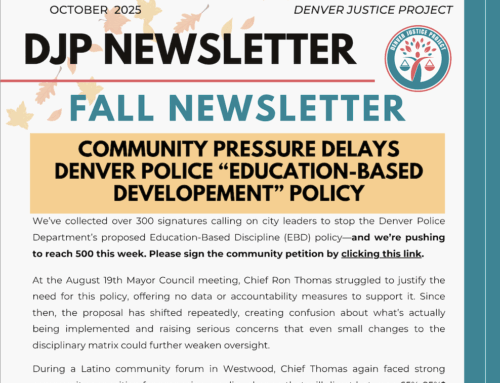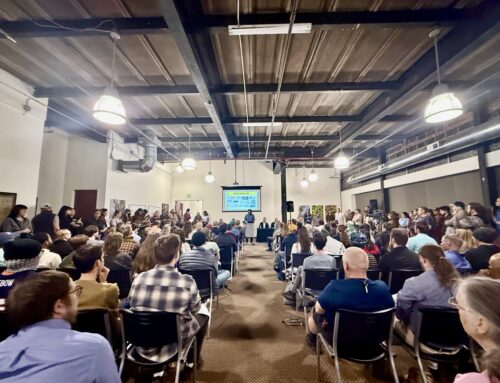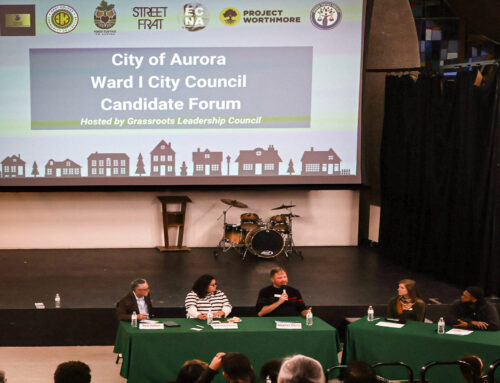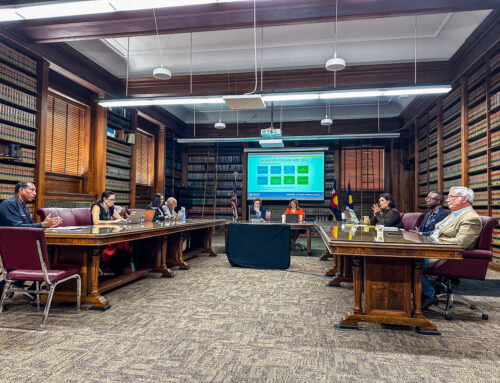On Thursday, May 22nd, over 50 Northwest Aurora community members, small business owners, and organizers came together for a community-led meeting hosted by the Grassroots Leadership Coalition. Organized in collaboration with East Colfax Community Collective, Food Justice Northwest Aurora, Street Frat, East Colfax Neighborhood Association, Project Worthmore, PSL, and the Denver Justice Project, the meeting created space for Northwest Aurora residents to directly share their perspectives and priorities with Progressive Urban Management Associates, the consulting firm hired by the City of Aurora to draft a redevelopment plan for the East Colfax corridor.
The conversation was facilitated by members of the GLC and community leaders, with residents leading the discussion on key issues. Together, the Northwest Aurora community identified five core priorities that must guide any redevelopment effort: access to basic goods and services, small business support, housing conditions, housing affordability, and safety. These priorities reflect ongoing conversations among community members, organizers, and local groups.
Residents spoke about the persistent lack of access to basic goods and services. Many noted the difficulty of finding fresh groceries, affordable pharmacies, urgent care, and safe outdoor spaces. The absence of reliable public transportation, clean and safe bus stops, and shaded sidewalks adds further barriers. Attendees emphasized the need to invest in infrastructure that supports daily life—not just new development. They also shared a desire for more support for public libraries, community gardens, culturally relevant services, and neighborhood gathering spaces that are affordable and accessible to Northwest Aurora residents.
Small business owners raised concerns about safety, theft, and the lack of accessible funding and resources. Many described a disconnect between available city support and the real needs of small businesses—particularly immigrant-owned storefronts. Others noted being left out of information loops and not knowing what resources exist or how to access them. Community recommendations focused on expanding grants, improving language-accessible outreach, strengthening protections for commercial tenants, and prioritizing essential local-serving businesses—like childcare, groceries, and household goods—when filling empty storefronts.
Residents shared their experiences with unsafe housing conditions, including mold, rodent infestations, broken plumbing, and lack of heat—often met with little to no response or accountability from landlords. Several described facing retaliation after requesting repairs and noted the absence of clear avenues to enforce their rights as tenants. Recommendations included establishing a rental licensing program, increasing proactive inspections, and enforcing meaningful penalties for code violations. Residents also emphasized the need for accessible, language-inclusive education on tenant rights and repair processes, particularly for immigrant and multilingual communities.
The conversation around housing affordability focused on both long-standing displacement pressures and the risks posed by future development. Northwest Aurora has some of the lowest median incomes in the region, and without strong protections, redevelopment could accelerate displacement. Residents recommended a No Net Loss policy to preserve existing affordable housing, local rent stabilization if the statewide ban is repealed, and major investments in community land trusts and mixed-income neighborhood models. They also called for expanded access to housing vouchers, down payment assistance, legal support for tenants, and inclusive housing programs that don’t exclude undocumented residents.
Residents described feeling increasingly unsafe—whether due to speeding traffic, poor lighting, or unsafe parks—and noted how city investments continue to be concentrated in policing instead of non-law enforcement alternatives. Community members and organizers emphasized the need for youth programming and behavioral and mental health services. Attendees stressed the importance of community-based safety strategies and public infrastructure such as improved sidewalks, safer crosswalks, and accessible gathering spaces. There was strong support for increased transparency and accountability from the Aurora Police Department, including the timely release of footage, independent investigations, and expanded oversight.
The Grassroots Leadership Coalition closed the meeting with a clear message: any redevelopment plan must center the needs and leadership of the people who live and work here now. A draft of the plan is expected in mid-June. Aurora City Council will vote on whether to place the proposal on the November ballot, where only residents and business owners within the boundary will be eligible to vote.
